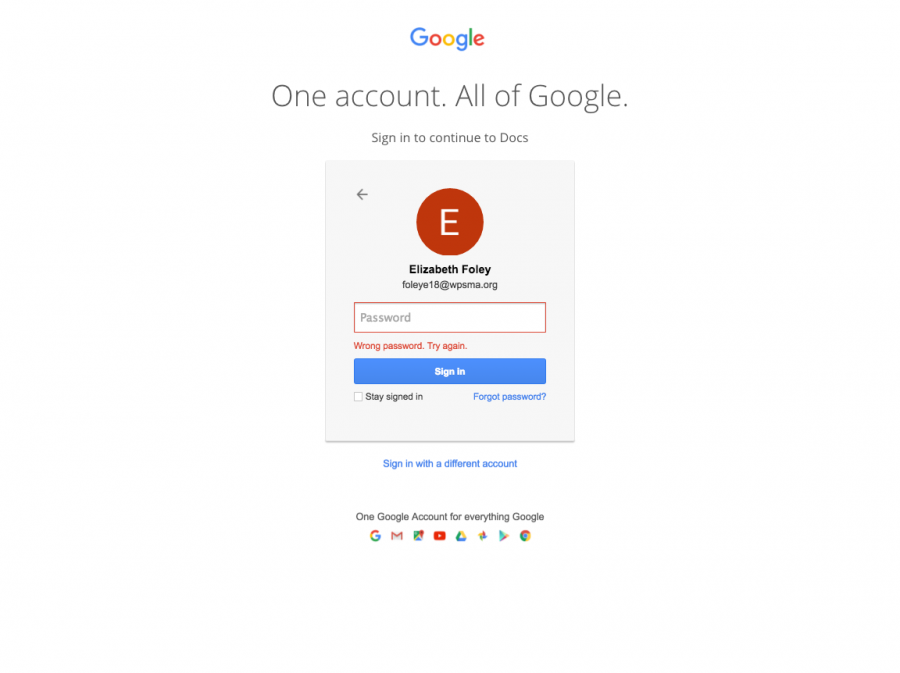Phishing Scam Hidden in Email Causes Shutdown of Student Accounts
On Monday, Dec. 12, 2016, students were unable to log onto their school google accounts which inhibited their access to their emails and google classroom. Students were locked out of their google accounts because of a phishing scam—an attempt by hackers to trick people into giving out personal information—hidden within a seemingly innocent email sent to some students and faculty.
This particular scam prompted the respondents to give out personal information, and if a student were to give out his or her personal information, the hackers would have access to personal emails, phone numbers and other personal accounts.
“They accessed a lot of contacts from our address books and were able to send out a phishing scam email,” said Ann Arpin, about the people who sent the emails. Arpin is the director of technological integration for all Walpole Public Schools. She, along with network specialist Ann Pellowe and many other tech support specialists, worked together to solve the issue.
The tech support specialists received reports of the suspicious email and began to monitor everyone’s emails. Arpin then encouraged the people who had contacted her, fearing the email was not innocent, to change their emails immediately. Later in the evening, the team noticed even more strange activity with many students, and thus disabled all student accounts.
“We could not notify everybody to change their passwords, so we immediately disabled all student accounts,” said Arpin.
Many students were confused as to what was happening when their accounts were disabled.
“I had no idea what was going on; I could not do my homework or see if my teachers posted any homework on google classroom,” said junior Kelly Kauranen about the incident.
Early morning on Tuesday Dec. 13, technology teachers and advisors at every middle school and the high school came in early in order to distribute new passwords to every student. Some staff members also received new emails.
However, many students were upset with inconvenience of the change in passwords.
“It was a hassle to get new passwords because I’ve had my old password since middle school, and it’s basically my password for everything,” said junior Alex Rodia.
Nevertheless, the new passwords were essential to protecting the security of the students, according to Arpin. Although the identity of the hackers is still unknown, Arpin says the most important issue at hand is educating people on what a phishing scam is and teaching students how to identify them. The best way to do it online cyber security training.
“There is a need for more student education and resources—starting in elementary school—about student privacy, security and digital citizenship in order to build an awareness at much earlier age.”











